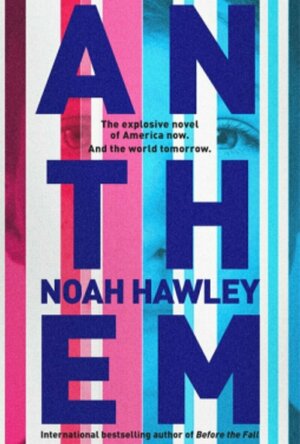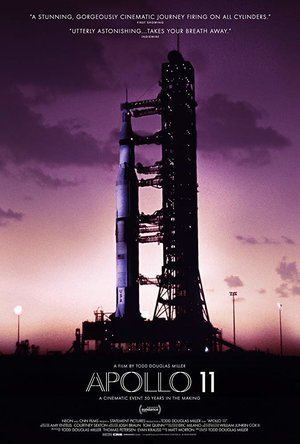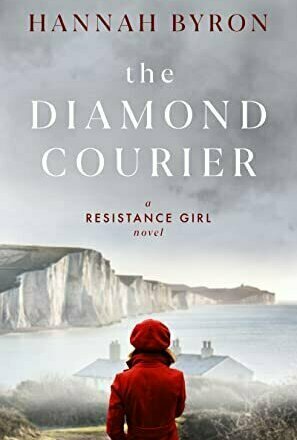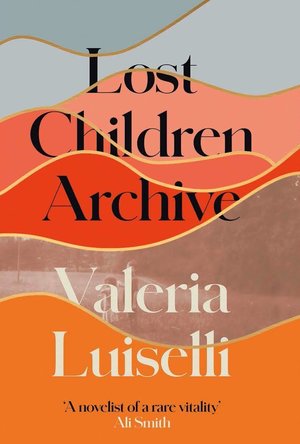
Lost Children Archive
Book
From the two-time NBCC Finalist, a fiercely imaginative novel about a family's summer road trip...

Jane Seymour: The Haunted Queen
Book
Acclaimed author and historian Alison Weir continues her epic Six Tudor Queens series with this...
The pandemic of teenage suicides is disturbing, and reflects their despair at the state of the world left for them by previous generations. Parents with money think that they can prevent their childs’ suicide and cure their anxiety throwing money and anti-depressants at the ‘problem’, and sending them to an Anxiety Abatement Centre - and that’s how Simon meets the Prophet and Louise. And that’s where the quest begins.
It turns out that adults are responsible for more than Climate Change. You can add child abuse and big Pharma into the mix as well. And then there’s the political state of the country, where no party is any better than the other, and what’s more, they’re interchangeable. There was a lot of head nodding going on as I read.
And Noah Hawley breaks the 4th wall as he talks directly to the reader, talking about his thought process in writing the novel.
This book is a huge exaggeration of the state of the world, at the same time as it’s not. I hope it doesn’t come to the things that happen in Anthem, but we’ve seen snapshots of it on the news already.
It’s just the right level of crazy, believable, unbelievable, mind-blowing fiction that keeps me well-entertained. I know Noah Hawley is a screen writer, and I can see this as a film - hey, I’d watch it.
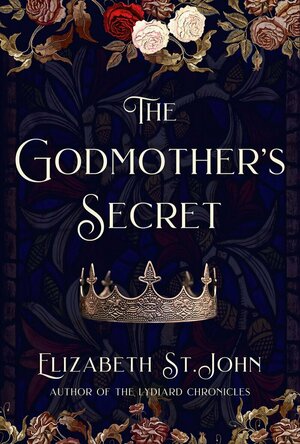
The Godmother's Secret
Book
What if you knew what happened to the Princes in the Tower. Would you tell? Or would you forever...
Biographical Historical Fiction Historical Mystery
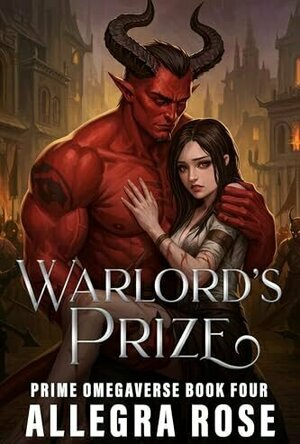
Warlord's Prize (Prime Omegaverse #4)
Book
She bargained herself for her people's survival. Now she's claimed by the most powerful oni warlord...
Monster Romance Omegaverse Science Fiction Dub Con Non Con Pregnancy Loss
Kirk Bage (1775 KP) rated Apollo 11 (2019) in Movies
Jan 22, 2021
Director Todd Douglas Miller makes the bold choice to do away with all narrative, cutaway interviews and commentaries, and just shows you what happened in gorgeous detail, with a kind of retro super 8 camera vibe, and a very evocative sountrack. The degree of unseen footage of the entire project is jaw-dropping, especially if there is something of a science or even science fiction geek within you.
Some of what you see and hear is, of course, so iconic that when you see or hear them you feel a sense of deja vu that feels like a dream in the context of the full story. The rest is so amazing to contemplate as something that humanity actually achieved that it is tempting to see it as an odd retro sci-fi movie with quite bad effects and a dull plot; the control room, suits, the rocket itself, the sense of endless patience, anticipation and waiting – you just wouldn’t believe it would work if it was a fiction.
At several points I found myself reminding myself that it wasn’t a fiction, and then marvelling at the entire world that existed at the end of the 60s, and how so essentially different it was, and how ancient it feels now. I wasn’t quite born when all this happened, but it has been very much in my imagination all my life. I wanted to be an astronaut, as did most other kids in the Star Wars era of the late 70s and early 80s, and I only really gave up when I realised that meant being as smart and dedicated as Neil Armstrong and not as reckless and cool as Han Solo. Now I am older, I can appreciate things about it that I never could, and in understanding Human history, it is a riveting chapter.
What we see in this film is how detail and hard work and maths and safety precautions and thousands of team members made this happen. Every nut and bolt, and every drop of sweat and fuel is counted, recounted and considered. At times it seems mundane and without drama, boring even, and then the sheer scale of acheivement and wonder overtakes you as you catch yourself realising how incredible it was that any of this was done at all.
There is no political overtone or background here, no conspiracy theory, no other voice questioning the economic impact or wisdom of the entire endeavour, just a childlike but serious minded wonder at doing something because we could if we set our minds to it. And for that it has a beauty and transcendent elegance that rarely accompanies the subject. By the end, there is really only one word to describe the fact that over 50 years ago three men looked down on the Earthrise and beheld every other living thing in existence in one glance. And that word is: wow!
It is slow, for sure, but only because we have become used to pace and forced drama, from our fictions and our documentaries. Apollo 11 won’t be for everyone in that case, and may even be fairly called dull by some who can’t relate to it in any way. For me it was a trance like epiphany I can’t forget. Highly recommended if you are looking for something fascinating, educational and thought provoking out of your comfort zone and out of this world!
Hazel (1853 KP) rated The Diamond Courier in Books
Dec 10, 2020
The surname Hamilton may be familiar to those who have read the previous book but Lady Madeleine has left her war achievements far behind in The Diamond Courier where she plays the role of a prim and proper lady of the house. Her daughter, Liliane, feels trapped by her sensible parents' expectations who thwart her plans to be a political journalist. Yet Lili, encouraged by the handsome leader of the British Communist Party Leo Oppenheim, perseveres, thus estranging herself from her family.
Lili soon learns living in London with Leo is not the life she desired, but feels it is too late to back out, especially after witnessing the treatment of Jews on the continent. The Jewish community need someone to bring their precious diamonds to safety before the Germans get their hands on them, and they believe Lili is the best person for the job. Unless, of course, she gets caught.
The Diamond Courier is much darker than Byron's previous book. Naturally, war is not a happy topic, but the sense of hope felt in In Picardy's Fields is missing in this novel. The story divides into two sections, "Leo" and "After Leo". The former is lengthier, drawn-out, and not always pleasant to read. The latter, on the other hand, is packed with danger, excitement and adventure.
For Lili, Communism is something new and exciting, which she desires to pursue. The party has clear views about the war, with which all members must agree. Yet, when faced with the horrors of war, Lili realises she must cast aside her political opinions. Whether Communist, Jew, sympathiser or resistance member, no one deserves the terrible treatment delivered by the Nazis.
Although this is a work of fiction, Byron remains faithful to the true nature of the Second World War. She does not gloss over any of the atrocities and, whilst the reader keeps their fingers and toes crossed that Lili will get her "happily ever after" ending, this cannot be possible for everyone in the novel.
Aiming to show the strength of women living in a "man's world", Byron has created female characters of whom to be proud and respect. Whilst the storyline may not always be pleasant, it is a gripping narrative that immerses the reader into Lili's life and experiences. Hannah Byron has a way with words that keeps the reader engaged throughout. She is an author to keep an eye on.

The Dark Side of the Enlightenment: Wizards, Alchemists, and Spiritual Seekers in the Age of Reason
Book
In The Dark Side of the Enlightenment, John V. Fleming shows how the impulses of the European...
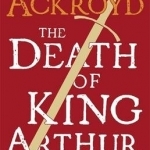
The Death of King Arthur: The Immortal Legend
Book
A gripping retelling of the timeless epic of romance, enchantment and adventure, Peter Ackroyd's The...

Intimate Geography: Selected Poems 1991-2010
Book
Jennifer Maiden's "Intimate Geography" charts territory both personal and political, private and...
